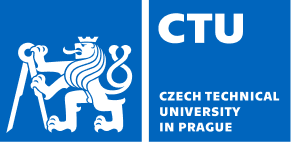About this course
In the course Smart Urbanism we illustrate how technological innovation has affected cities from history to the present, and on that basis we discuss future challenges and implications for urban planning and management. We focus in particular on the relationship of technological innovation to urban metabolism, urban morphology, land use, urban ecosystems, demography, mobility and urban society, and the way cities are understood and managed through data and information technology.
Learning outcomes
On successful completion of the module, students will be able to: • Identify the theories of spatial morphology and land-use on regional and urban scale • Explain the basic concepts of urban metabolism • Identify current issues and trends in urban transport and utilities • Explain the current trends in demography, socio-spatial distribution • Describe the role of public space in history, present and future cities. Discuss the implications of new technology on the usage and design of public space. Explain the principles of good public space design in Smart cities • Explain the basic concepts of urban mobility. Describe the historical evolution of transport technology and respective urban planning and design concepts. discuss urban mobility in Smart cities, social, environmental and economic implications. Identify the challenges for urban design and planning • Describe evolution of urban simulation modelling, identify distinctive approaches and representative models, their strengths and weaknesses • Identify the main incentives and models (trajectories) of Smart cities development, actors, their motives and roles. Discuss the main challenges of Smart cities development • Identify the main challenges to urban governance of Smart cities
Examination
Method of Evaluation
Assessment will be based on the completion of an individual or group assignment, including the final oral presentation, discussion, and written report.
The Assignment
Each student or group of students will select a Smart City project related to one of the listed presentation topics. It is recommended that the selected case come from the student’s home city or country. The analysis should address the set of questions provided in assignment sheet.
Evaluation Criteria
Students will be graded according to the standard grading scale: Excellent, Very Good, Good, Satisfactory, Sufficient, or Failed.
Evaluation will be based on:
The accuracy and completeness of responses to all questions in the provided list;
The quality and clarity of the oral presentation;
The structure, content, and overall quality of the written report.
Form of Examination
The final examination consists of an oral presentation and discussion, accompanied by a written final report.
Course requirements
The minimum number of students to open the course is 5. EXCEPTION for self-paying students: if there are less than 5 students, the course will be taught in consultations.
Resources
- Website of the Course
Activities
lectures
Additional information
- Coordinating facultyCzech Technical University in Prague
- Contact a coordinator
- About studying within the Euroteq alliancehttps://euroteq.eurotech-universities.eu/initiatives/building-a-european-campus/course-catalogue/
- LevelMaster
- Contact hours per week2
- Instructorsdoc. Ing. arch. Vorel Jakub Ph.D.
- Mode of deliveryHybrid
